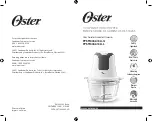
LVM-110 SIGNAL CONDITIONER
With DC Voltage Output
TE CONNECTIVITY SENSORS
/// LIM-420
MANUAL 09290051-000 REV C
07/2016
Page 3
Introduction
The LVM-110 is an LVDT/RVDT (Linear or Rotary Variable Differential Transformer) signal conditioning board with DC voltage
output, primarily designed for OEM process automation applications. The design has been optimized to provide maximum
versatility while offering good performance at a moderate cost.
Product Specifications
For complete specifications and ordering information, please refer to the datasheet at:
http://www.te.com/usa-en/product-CAT-PSI0006.html
ELECTRICAL SPECIFICATIONS
Supply voltage
±12VDC or ±15VDC, ±10% (Note; ±15VDC required for ±10VDC output)
Supply current
±50mA maximum
Output voltage ranges
±5VDC, ±10VDC, 0 to +5VDC, 0 to +10VDC
(DIP switch selectable)
Temperature coefficient of output
±0.02% of FSO per ºF [±0.036% of FSO per ºC] over operating temperature range
Output current
5mA maximum
Output noise and ripple
15mV RMS maximum
Output impedance
1Ω maximum
Frequency response
250Hz @ -3 dB, 3-pole Butterworth filter
Non-linearity
±0.05% of FSO maximum
Stability
±0.05% of FSO maximum
(after 15 minute warm-up)
Zero suppression
±6VDC total
Transducer excitation
Voltage
3VRMS ±10%, sine wave
Current
20mA RMS maximum
Frequency
2.5, 5, 8 or 10KHz
(DIP switch selectable)
Transducer requirements
Transducer type
LVDT or RVDT with 5 or 6 electrical connections
LVDT/RVDT input impedance
150Ω minimum
LVDT/RVDT output range
0.1 to 5.6 VRMS for ±10VDC signal conditioner output
ENVIRONMENTAL AND MECHANICAL SPECIFICATIONS
Operating temperature range
30°F to +130°F [-1°C to 55°C]
Storage temperature range
-40°F to +257°F [-40°C to 125°C]
Zero and gain adjustments
20-turn potentiometers
Electrical connections
PC board edge (to backplane-type connector)
or barrier terminal strip; accepts AWG 14 to 30 wire sizes
Mounting
Use the attached threaded standoffs or card-edge guides
Notes:
All values are nominal unless otherwise noted
FSO (Full Scale Output) is the largest absolute value of the outputs measured at the range ends

























